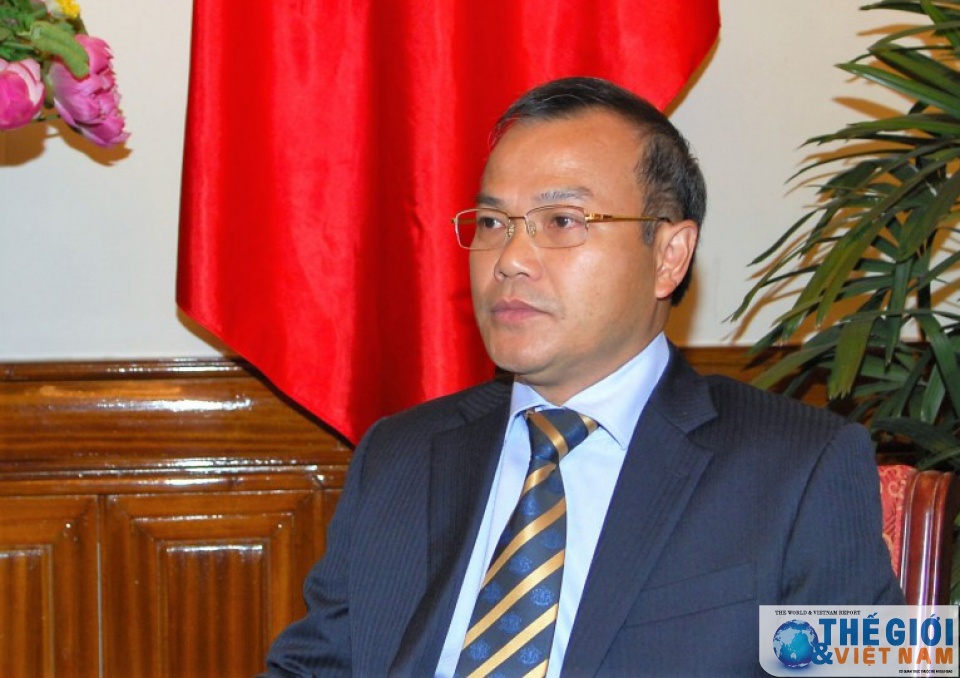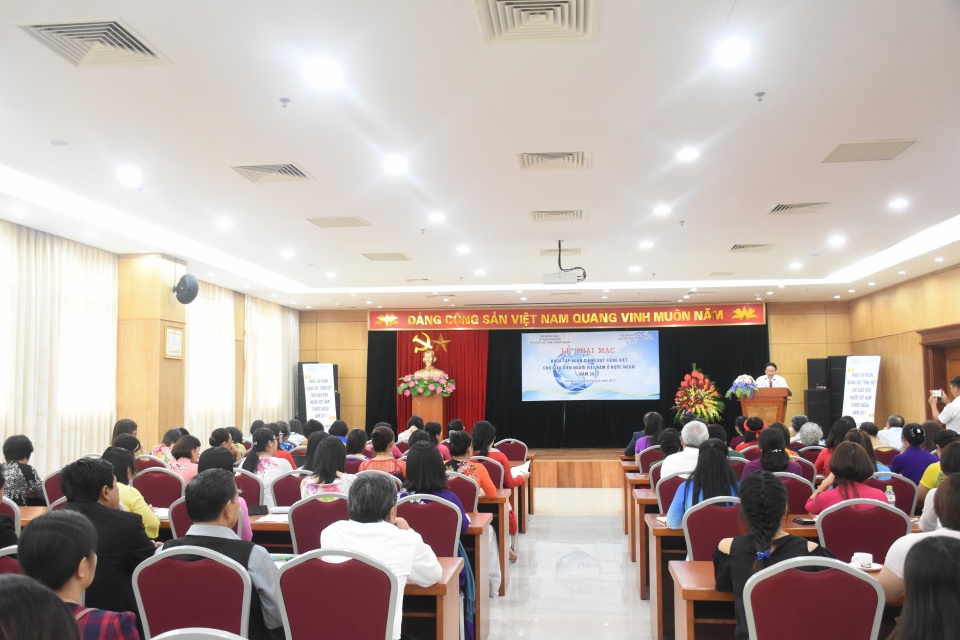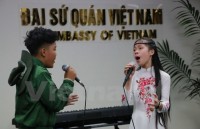
Preserving Vietnamese language abroad no more a concern
Latest
| TIN LIÊN QUAN | |
| Language training course held for overseas Vietnamese teachers | |
| No great success was ever achieved without failure | |
Our Party and State pay close attention and concern to preserving the Vietnamese language for the overseas Vietnamese community, as is clearly stated in Resolution No. 36-NQ / TW of the Politburo dated March 26, 2004, as well as the Program of Action of the Government on April 5, 2016. Mr. Deputy Foreign Minister, can you comment on the progress made in this task?
Over the past few years, the SCOV has consistently attached importance to building, consolidating and developing the movement of learning Vietnamese among the overseas Vietnamese community. This represents an important step in supporting the community, through the preservation of our national traditions and cultural identity in order to contribute to the dissemination of the Vietnamese language and culture abroad.
This task has been implemented in both depth and width. We feel proud of our accomplishments, such as organising training courses, raising funds to support language classes, providing textbooks, etc. For example, in the last two years, we have been able to provide basic textbooks to the most disadvantaged areas and expand the use of an online curriculum. Additionally, training courses for overseas Vietnamese teachers have been held both at home and abroad.
We believe strongly in the saying “If the language exists, Vietnamese people will also exist”, and the overseas Vietnamese community has always done their best to preserve their mother tongue. According to preliminary statistics, in the United States, there are now about 200 Vietnamese teaching centres and establishments. Thailand has about 39 classes, Cambodia has 33 schools and centres, and there are 13 establishments in Laos. Even further afield, the Czech Republic, Germany, Russia and Ukraine boast dozens of Vietnamese language centres. As a result, the Vietnamese language continues to be taught and spoken abroad, serving as an important link between the overseas Vietnamese community and their homeland.
 |
| Deputy Foreign Minister Vu Hong Nam, Chairman of the State Committee For Overseas Vietnamese (SCOV). |
What are the main difficulties you face in your work?
So far, I think we have already addressed the biggest challenge, which is to develop the study of the Vietnamese language into a broad movement that runs parallel to the love for the country and mother tongue among overseas Vietnamese. Up until now, the movement has grown significantly. However, to be more effective, there should be more schools, class rooms, teachers, textbooks and students.
Regarding textbooks, we are taking various steps so that they can be delivered directly to students. In terms of class rooms, there is a shortage, but we are fortunate to have many dedicated and devoted teachers. While on a number of trips abroad, I was delighted to see many people opening their homes, temples and religious centres in order to accommodate Vietnamese classes. This is happening in Thailand, the US and Europe. We are also glad that Vietnamese associations have become sources of spiritual and material support for teachers and students.
On the subject of teachers, over the past few years, those who have attended training courses at home have gone on to become teachers for the next generation of students. It can be said that we now possess a sufficient number of core teachers. We expect that more training courses will be held in the future to respond to the actual needs of each area. Another difficulty is the absence of a remuneration system for teachers, meaning that most teachers are volunteers. We will have to work on this issue in order to better support overseas teachers.
The important thing is maintaining the momentum of learning Vietnamese through care and concern. The attention and support can come from a variety of sources, both within Vietnam and abroad. I firmly believe that we will surmount the difficulties, especially when there are strong ties among various agencies, organisations, associations and Vietnamese individuals who are passionate about removing obstacles to the study of our language.
 |
| The opening ceremony of the training course on Vietnamese teaching in Ha Noi, August 8. |
How do you evaluate the efficiency of Vietnamese language training courses over the last 5 years?
The current training course aims to improve teaching standards, updating the knowledge of professional and amateur teachers who teach Vietnamese at establishments set up by the overseas communities. Over the last 5 years, 196 trainees have enhanced their pedagogical skills in order to teach Vietnamese. When they returned to their homeland, they became a core teaching force, actively participating in teaching Vietnamese in their own localities. For example, Ms Nguyen Lan Huong, who attended a training course in 2016, went on to open the ‘Sao Mai’ and ‘Watchtower’ schools in Berlin and also taught there herself. Another example is Ms Nguyen Thi Xuan Oanh, who taught Vietnamese in Udon Thani, Thailand, and was awarded the certificate of merit by the Minister of Foreign Affairs due to her significant contribution to teaching Vietnamese.
This year’s training course will draw the participation of 78 people. There are areas with a high number of participants, such as Taiwan (35 people) and Thailand (12 people). Particularly, for the first time, there are two participants coming from Japan. Do you think this shows the movement is spreading?
I’m delighted to see the number of trainees growing over the years. This shows that the movement of teaching and learning Vietnamese in the community is expanding, and that reflects a growing need for professional training and teaching methods for overseas Vietnamese teachers.
I know that this year, some outstanding teachers are joining the course, such as Ms Vu Thi Tin, who has been working for many years as a volunteer and is now teaching at the Khanh An Temple, Udon Thani Province, in Thailand, or Ms Ha Kim Chi who, in addition to teaching, has been running classes for Vietnamese children in Turin for many years. Other teachers like Thach Thi Lien, Nguyen Mai Thuy, Nguyen Thi Loan and Nguyen Thi Xuan Huong are still teaching Vietnamese under difficult conditions in Cambodia.
I believe that after the course, with valuable knowledge and the experience they already have, they will make worthy contributions to the Vietnamese teaching movement in their localities.
 | Workshop connects overseas Vietnamese students, Japanese businesses The Vietnamese Embassy in Japan and the administration of Saitama prefecture held a workshop recently to introduce jobs for overseas Vietnamese students. |
 | Children promote Vietnam's images in New Zealand An event featuring performances of Vietnamese children was recently held at the Embassy of Vietnam in Wellington, the capital city of New Zealand. |
 | Ambassadors asked to promote national image abroad Prime Minister Nguyen Xuan Phuc has urged ambassadors and heads of Vietnamese diplomatic agencies abroad for the 2017-2020 term to work hard to promote the ... |

















